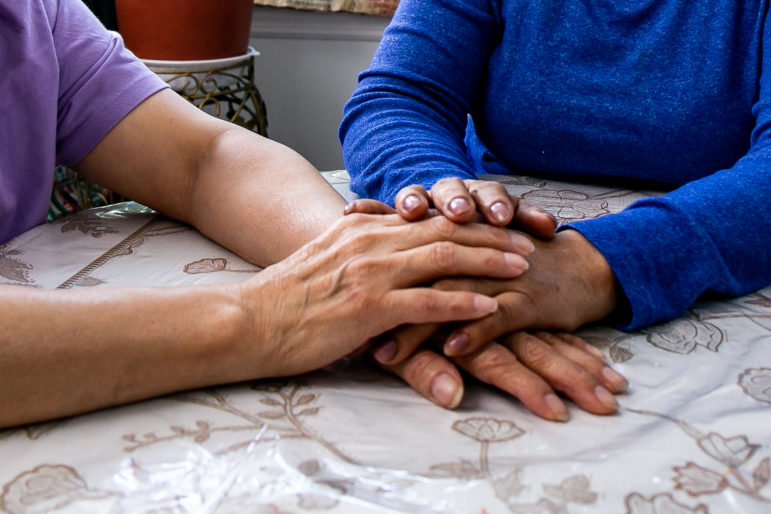
Adi Talwar
Read the original story in Polish at Nowy Dziennik
Translated by Aleksandra Slabisz
The elderly are among those adapting to the new reality of coronavirus-related stay-at-home orders, and the change can be especially jarring for senior immigrants who struggle with English.
“They get information from one another, which leads to exaggeration and misinformation,” says Marta Kustek, manager at the Northside Senior Center in Williamsburg.
The center, managed by the NYC Department for the Aging, serves some 70 people. Every third member is an immigrant from Poland.
“Before the pandemic hit, they were able to participate in various activities throughout the week, including having lunch together, in our center. Then we had to suspend all activities,” says Kustek.
Until March 27th, members of the Northside Senior Center were able to come and pick up lunch to go. After that date, for safety reasons and to allow seniors to observe the stay-at-home mandate, lunches are being delivered to their homes.
“Our center, just like others of this type, only stores the food before it is picked up for delivery,” Kustek explains. She encourages seniors who are in need to call 718-387-2316 between 8 a.m. and 4 p.m. to sign up for lunch delivery. “We only require that members are over 60 years of age and New York residents. The immigration status does not matter. Our center serves the residents of Greenpoint and Williamsburg, but I will forward the call to an appropriate center for callers from other parts of the city,” she says.
Some of her staff, like the kitchen workers, lost jobs due to the corona virus pandemic. The essential staff of the senior center still report to work, but can only offer assistance over the phone.
“I think seniors need us more than ever. That’s why we call them every day. We know that some of them have a hard time in isolation. They are scared, especially hearing all around that they are the major risk group,” says Kustek. “We make sure that they have food on the table, but also that they are feeling well. Even one phone call a day and a kind question about how they are doing means a lot to them.”
She appeals to everyone to make sure that their elderly relatives and neighbors do not feel forgotten in the times of isolation.









